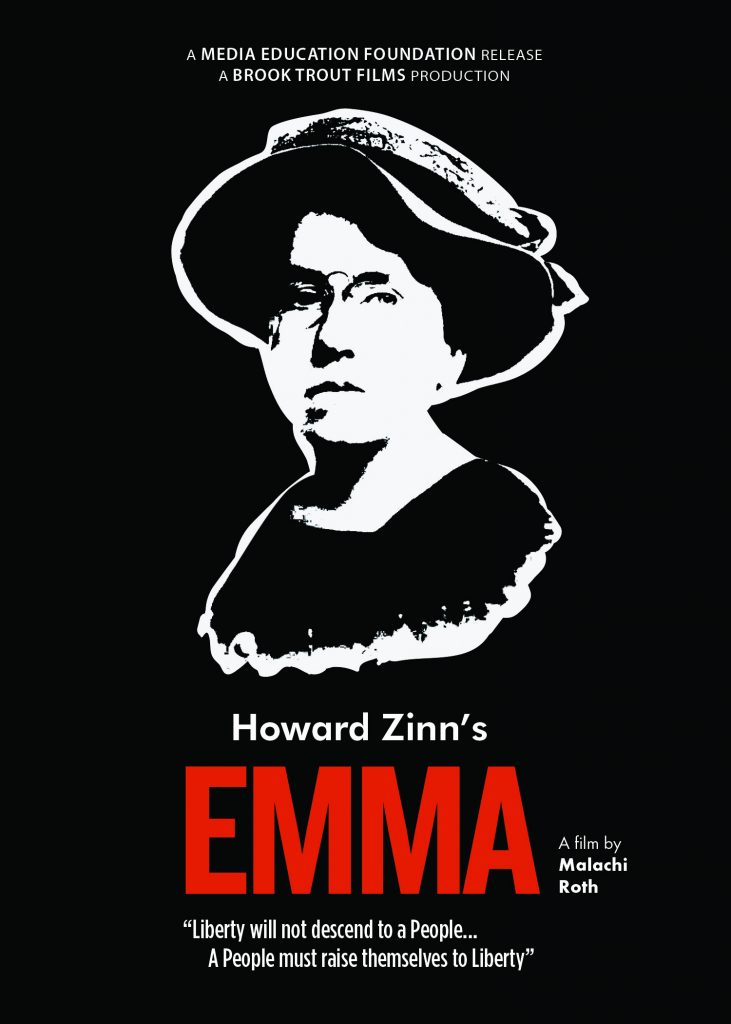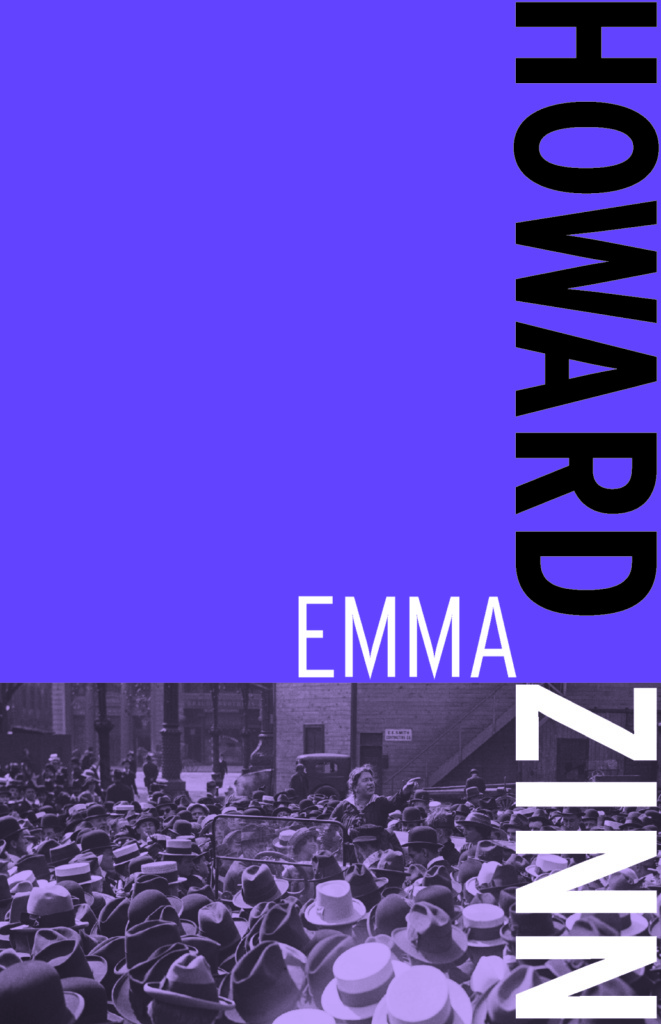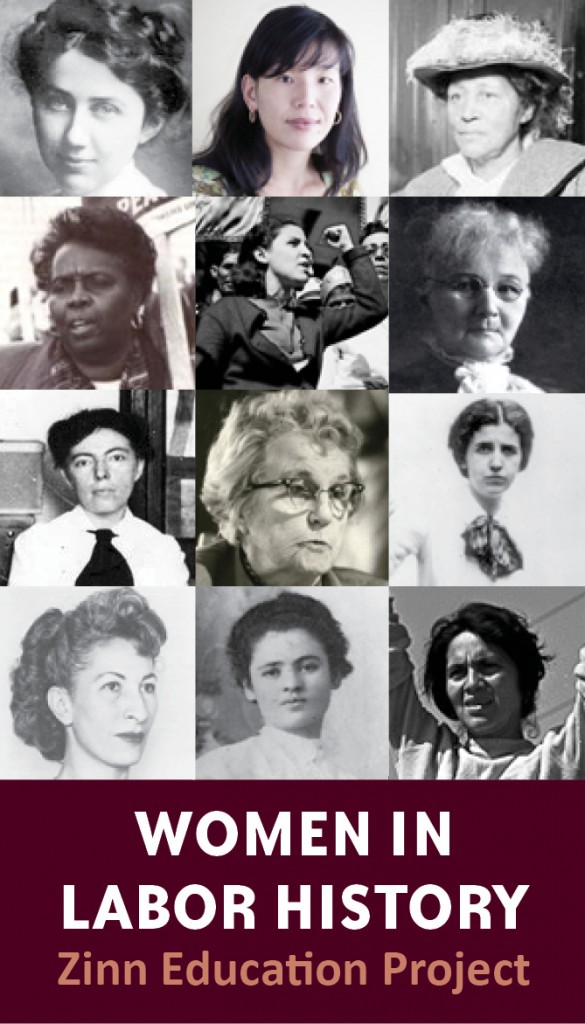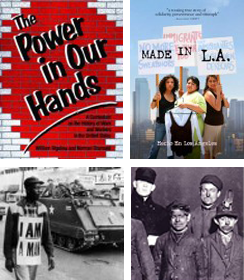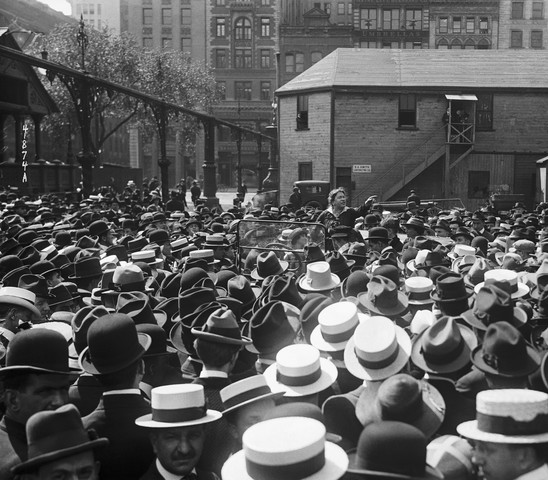
Emma Goldman (June 27, 1869–May 14, 1940), was an anarchist and early advocate of free speech, birth control, women’s equality, and unions. After reading Richard Drinnon’s biography of Emma Goldman, Rebel in Paradise, Howard Zinn read Goldman’s autobiography, Living My Life.
As a historian with a PhD, Zinn was astonished he had never learned about Goldman in his studies. “Here was this magnificent woman, this anarchist, this feminist, fierce, life-loving person.” Zinn began assigning Living My Life to his students who “loved it. They found in her what I found in her: free spirit, bold, speaking out against all authority, unafraid, and as the title suggests, living her life, as she wanted to live it, not as the rules and regulations and authorities were telling her how to live it.” Zinn continued to use her writings in his classes and wrote a play about her titled Emma.
The following is an excerpt from Chapter 10 of Howard Zinn Speaks, “Emma Goldman, Anarchism, and War Resistance,” in which Zinn recounts the Haymarket Affair, commemorated as May Day, an event that led to Goldman’s life long commitment to activism. Resources for learning more about Goldman and labor history follow.
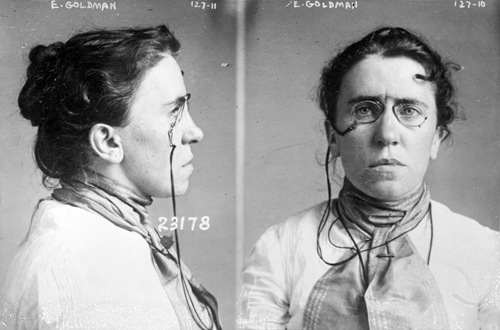
By Howard Zinn
I wrote a play about Emma Goldman, and I had to make a decision. Her life was so long and full, and there’s always in any work of art a problem of what do you leave in and what do you leave out. And there’s so much to her life, so I started with her as an immigrant girl, a teenager living in Rochester, New York, and working in the factory. Her political awareness taking a leap in 1886 at the time of the Haymarket Affair. How many of you know about the Haymarket Affair? I always have to take little polls, to avoid telling people what they already know. Of course, I don’t mind telling people what they already know—we all have to be reminded, right? Again and again. But the Haymarket Affair occurs in the midst of labor struggles all over the country for the eight-hour day.
There’s a strike against International Harvester Company in Chicago. The police come. It’s the usual scene, police vs. strikers. But the police fire into the strikes and kill a number of them. At that time, Chicago was a great center for radical activity and anarchist groups. And the anarchists call a protest meeting in Haymarket Square. It’s a peaceful meeting, but the police barge into the meeting, a bomb explodes in the midst of the police, a terrorist attack. Nobody knows who threw the bomb. But you know, when a terrorist attack occurs, it doesn’t matter whether you know or don’t know. You’ve got to go after somebody. The police have to find somebody. So they find eight leading anarchists in Chicago. Nobody can tie them to the throwing of the bomb, but they’re anarchists. We have conspiracy laws. Conspiracy laws are very interesting. With a conspiracy law, you can tie anybody to anything. You don’t have to do anything to become the defender in a political conspiracy trial. So they quickly find these eight anarchists guilty of conspiring to murder, and they are sentences to death. Emma Goldman is aware of this. It goes up through the courts. The American judicial system is a wonderful system. Once gross errors have been made at a lower level, it’s very often hard to overcome that because the higher courts will limit themselves in what they can review. They’ll say, “Well, the jury and the judge considered the facts in this case, so all we have to deal with are the legal niceties, and we can’t go over the facts.” In any case, the Illinois Supreme Court approved the sentences.
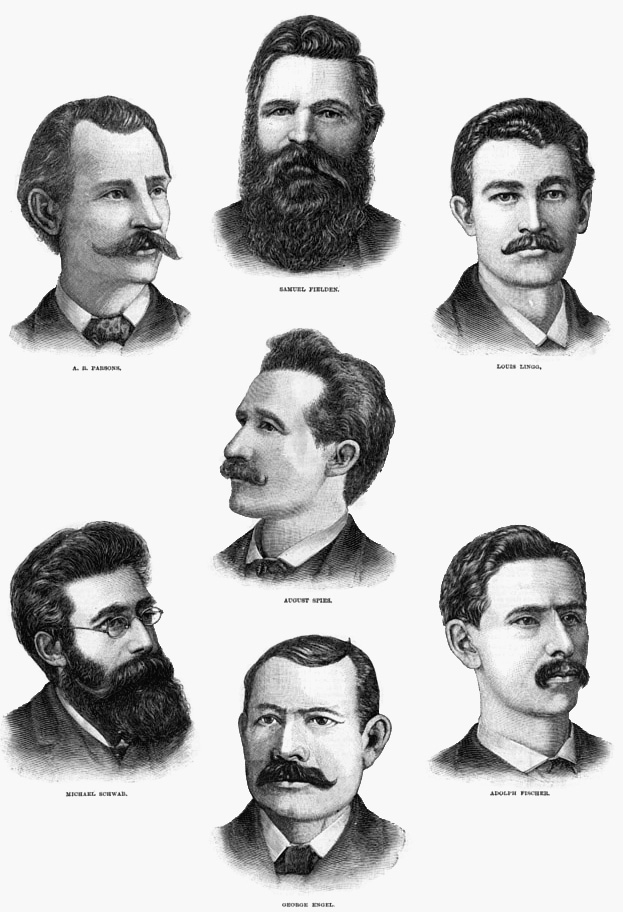
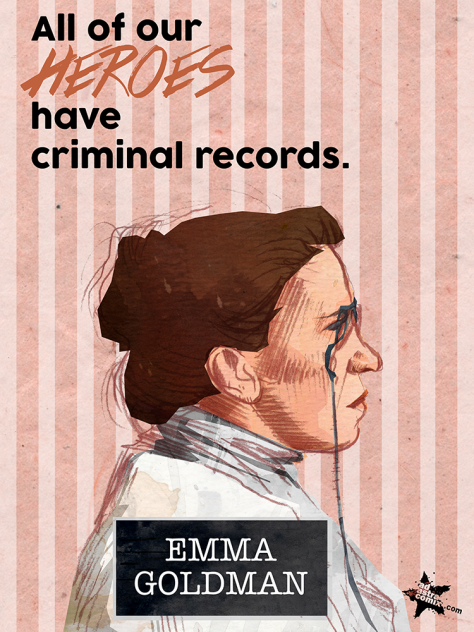
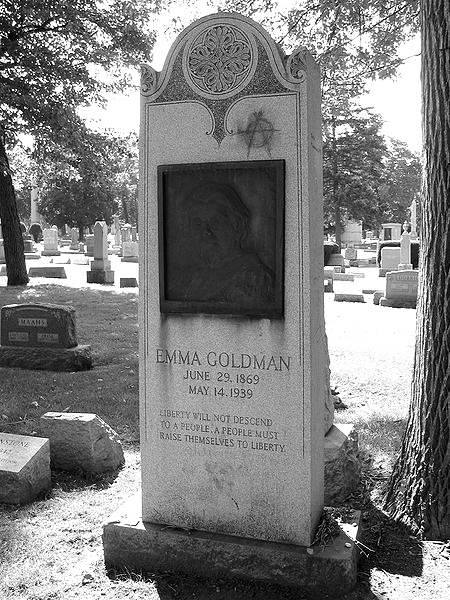
Image: Emma Goldman mugshot • Ad Astra Comix
Image: Emma Goldman speaking to crowd • WikiCommons
Image: Haymarket Martyrs • WikiCommons
Image: Emma Goldman’s grave • WikiCommons
More on Emma Goldman and the Labor Movement
Emma
Filmed live in 2005 at the Byrdcliffe Theatre in Woodstock, New York, with Zinn in attendance, the play draws on Goldman’s influential autobiography, speeches, and political writings to trace her emergence as one of the foremost radical intellectuals and dissident activists in America in the early part of the 20th century. Read more.Emma
In this play, historian and playwright Howard Zinn dramatizes the life of Emma Goldman, the anarchist, feminist, and free-spirited thinker who was exiled from the United Stated because of her outspoken views, including her opposition to World War I. Read more at Haymarket Books.
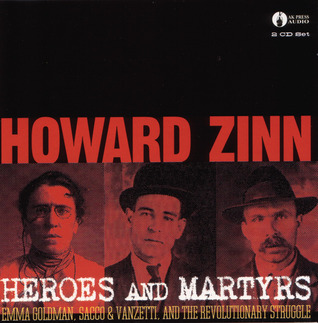
Heroes and Martyrs: Emma Goldman, Sacco & Vanzetti, and the Revolutionary Struggle (Audio CD)
Howard Zinn takes us back a century to a newly industrialized America, focusing on the organizers and agitators in the laboring and immigrant communities.
Sandra Oh Reads Emma Goldman’s “Patriotism: A Menace to Liberty” (1908)
On April 26, 1908, Emma Goldman gave this speech in San Francisco. Watch at The People Speak’s Vimeo page.
Women in Labor History
Brief bios of a few noted women involved in the labor movement. Read more at the Zinn Education Project.
Teaching Resources on Labor
Visit the Zinn Education Project for resources on the theme of labor.

